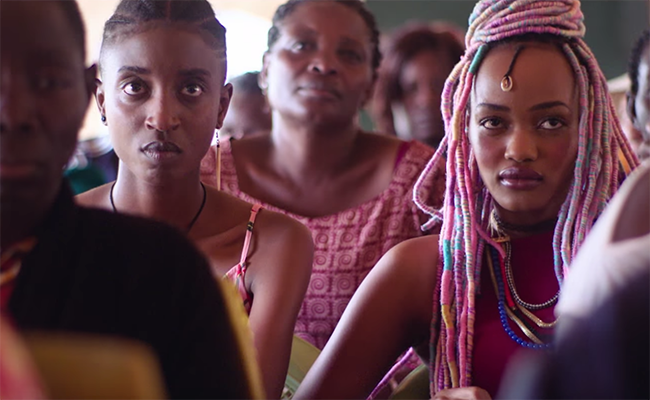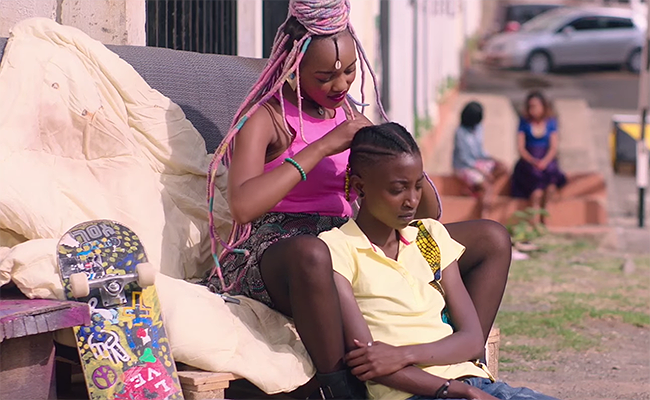Banned LGBT film ‘Rafiki’ breaks box office records in Kenya
The movie became the second highest-grossing Kenyan film of all time in the one week it was unbanned.

LGBT film Rafiki has become the second highest-grossing Kenyan film of all time after a government ban was lifted for one week.
The film, which tells the story of two women who fall in love, made its debut at this year’s Cannes Film Festival before it was banned in Kenya over its “homosexual themes”.
However, director Wanuri Kahiu sued the country and a Kenyan court eventually lifted the ban for one week in the country so the movie can meet the requirements to compete for the Best Foreign Language Film at the 2019 Academy Awards.
The film was permitted to screen from September 23 to 30 and within that week became the top performing film in Kenya, beating out Hollywood blockbusters Night School and The Nun. Reports suggest that movie-goers were queuing around the block to watch the film and cinemas added extra screenings to keep up with the demand.

Rafiki has since become the second highest-grossing Kenyan film of all time by making over $33,000 in the seven days it was unbanned, Out reports.
In a statement about the news, a spokesperson from Crimson Media, Rafiki’s Kenyan distributor, said: “Over a seven-day release, Rafiki has experienced a rush at Prestige Cinema only felt before at the Black Panther release earlier this year.”
“Even though there was limited screen time allotted at the last minute after the court ruling, the film was performing to full house capacity at all shows running, a welcome scene for a Kenyan film.”
Rafiki’s producer Steven Markovits said: “The success of the theatrical release proves that there is a strong commercial market for Rafiki in Kenya. We intend to take this film to other African countries to continue to build the case that quality African films are commercially viable on our own continent.”
The movie has since been banned again by the Kenyan government but filmmakers are pursuing further court action to unban it permanently.
